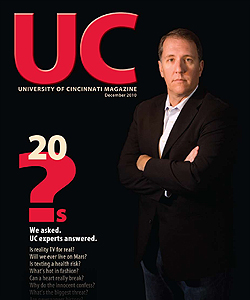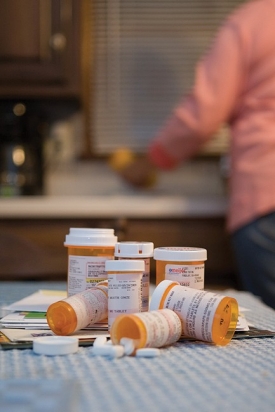Unwanted Medications: To flush or not to flush?
Shoved into the back of your medicine cabinet are likely to be unused or leftover prescription pills, syrups, creams or ointments. Maybe you thought you might need them again someday. Or maybe you have avoided cleaning out your deceased Aunt Millie's medications.
First of all, expired prescriptions should be disposed of because time can degrade the compounds, making medicines lose their potency or become totally ineffective, says Bethanne Brown, associate professor at UC's James Winkle College of Pharmacy. "And giving them to someone else is not an option as it is illegal to share prescription medications, even if someone is experiencing the same problem." How to properly dispose of medications, however, is gaining attention as reports by the U.S. Fish and Wildlife Service indicate that pharmaceuticals have crept into our waterways.
Though the impact on wildlife is contained at this point, indications are that trace amounts from the drugs do pass through humans and into sewage systems. Guidelines, therefore, are in place to help consumers make the best decisions when disposing of drugs. According to the U.S. Food and Drug Administration (FDA), common prescriptions like antibiotics or antihistamines can be disposed of in the household trash, but should be rendered irretrievable by doing such things as crushing the pills and mixing the remains with wet cat litter or used coffee grounds and placing the remains in a sealed container. This not only disguises the drugs, but makes them unattractive for consumption by children and household pets.Some medications, including narcotic pain relievers, are too dangerous to be handled and must be disposed of using safer methods. Although the FDA recommends flushing these medications, other government agencies oppose this method due to unknown environmental risks.
So what is a conscientious consumer to do? Local communities have begun offering Take Back Programs, which allow consumers to drop off unused medications at designated sites on specified days. There is no paperwork to complete, and the medications are disposed of in a manner that is safe for both people and the environment.
Link:
Find a drug about take-back program near you.

 Issue Archive
Issue Archive